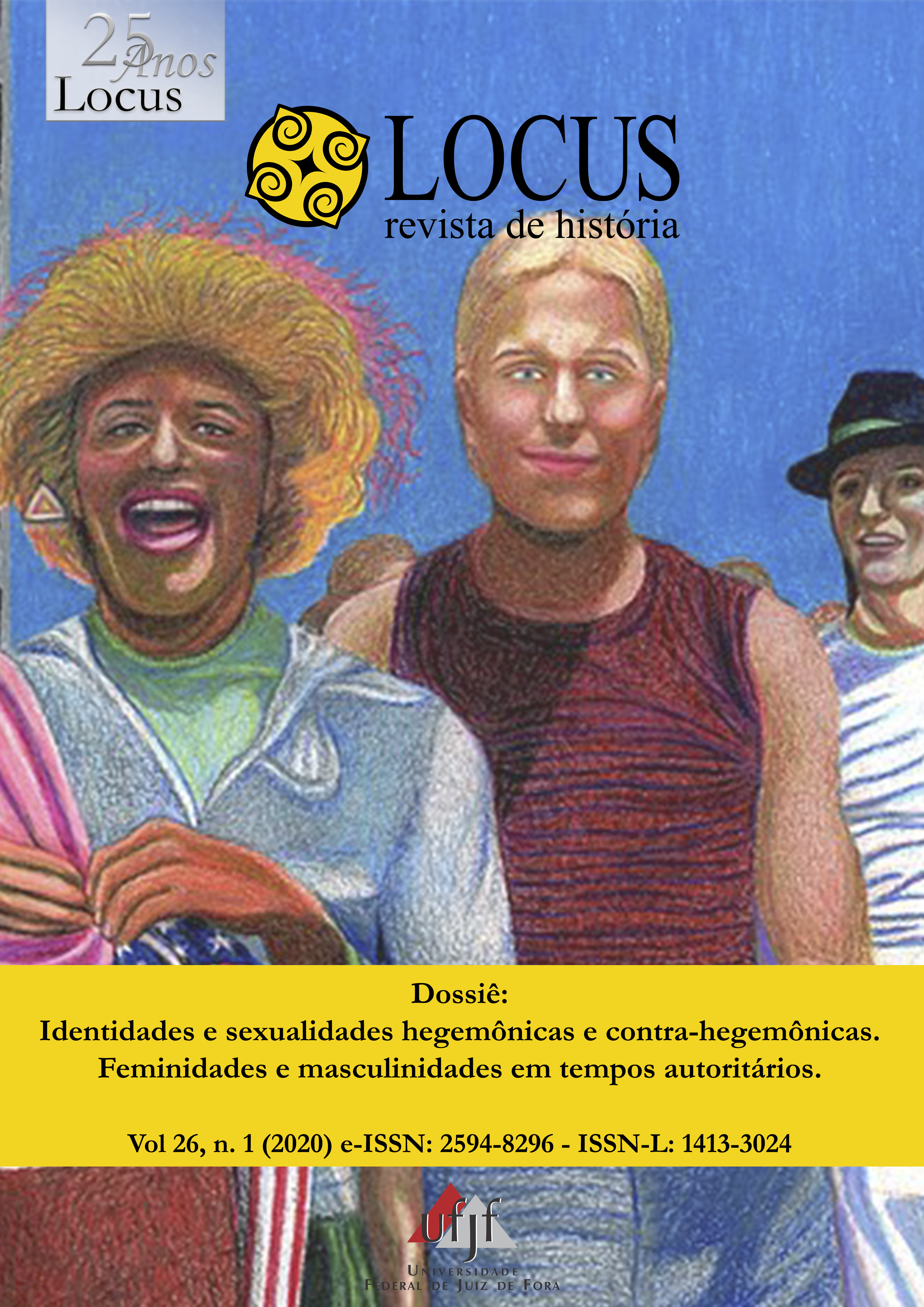Published 2020-04-18 — Updated on 2021-04-28
Versions
- 2021-04-28 (2)
- 2020-04-18 (1)
Keywords
- Biology,
- Queer,
- Gender and sexual identities,
- Individuation,
- Subjectivation processes
How to Cite
Copyright (c) 2020 Jose Luis Ferraro

This work is licensed under a Creative Commons Attribution 4.0 International License.
Abstract
By supporting the argument that all Biology is queer, this paper aims to shed light on an important discussion regarding the mistaken use of biological knowledge related to the complexity of gender and sexual identities construction theme. The negative instrumentalization of this science and the naivety related to its discursive understanding produces a series of errors commonly used to keep queer bodies in an abnormal condition in a patriarchal, heteronormative and binary society. Thus, the article intends to show that Biology is essentially based on – and by – biodiversity and its epistemology comprises queer modes of existence, although there is no type of biological determinism, but singular arrangements responsible for the constitution of these subjectivities – individuation processes related to forms of desire, modes of affection and performances, producing in the counter-hegemonic condition of subjects queer forms of possible resistance.
Downloads
References
- Bourdieu, Pierre. “Le champ littéraire”. Actes de la recherche en sciences sociales, 89, n. 1 (1991): 3-46. https://doi.org/10.3406/arss.1991.2986
- Bourdieu, Pierre. Sociology in question. London: Sage, 1993.
- Bourdieu, Pierre, e Terry Eagleton. “Doxa and common life”. New Left Review, 191, n.1, (1992): 111-121.
- Butler, Judith. El Género en Disputa: el feminismo y la subversión de la identidad. Barcelona: Paidós, 2007.
- Darwin, Charles, e Alfred Russel Wallace. “On the tendency of species to form varieties; and on the perpetuation of varieties and species by natural means of selection”. Journal of the proceedings of the Linnean Society of London. Zoology, 3, n. 9 (1858): 45-62. https://doi.org/10.1111/j.1096-3642.1858.tb02500.x
- Deleuze, Gilles. “Gilbert Simondon, o indivíduo e sua gênese físico-biológica”. Em: O reencantamento do concreto. Cadernos de subjetividade, org. Peter Pelbart e R. da Costa, 97-117. São Paulo: Hucitec. 2003.
- Deleuze, Gilles. O abecedário de Gilles Deleuze. Paris: Montparnasse, 1997.
- Deleuze, Gilles, e Félix Guattari. Mil Platôs: capitalismo e esquizofrenia. v.1. Rio de Janeiro: Ed. 34, 2000.
- Deleuze, Gilles, e Félix Guattari. O anti-Édipo: capitalismo e esquizofrenia. São Paulo: Editora 34, 2011.
- Derrida, Jacques. Gramatologia. São Paulo: Perspectiva, 2004.
- Derrida, Jacques. Posições. Belo Horizonte: Autêntica, 2001.
- Derrida, Jacques. Responsabilité et hospitalité. Manifeste pour l’hospitalité, Paris: Paroles l’Aube, 1999.
- Derrida, Jacques, e Anne Dufourmantelle. De l'hospitalité: Anne Dufourmantelle invite Jacques Derrida à répondre. Paris : Calmann-Lévy, 2014.
- Dobzhansky, Theodosius. “Nothing in biology makes sense except in the light of evolution”. The american biology teacher, 35, n. 3, (1973): 125-129. https://doi.org/10.2307/4444260
- Fausto-Sterling, Anne. Sexing the Body. New York: Basic Books, 2000.
- Foucault, Michel. A arqueologia do saber. Rio de Janeiro: Forense Universitária, 2007.
- Foucault, Michel. A ordem do discurso. São Paulo: Edições Loyola. 17ed. 2008b.
- Foucault, Michel. As Palavras e as Coisas: uma arqueologia das ciências humanas. São Paulo: Martins Fontes, 1999.
- Foucault, Michel. Em defesa da sociedade. São Paulo: Martins Fontes, 2016.
- Foucault, Michel. Segurança, território e população. São Paulo: Martins Fontes, 2008a.
- Foucault, Michel. Vigiar e punir. Petrópolis: Vozes, 1999a.
- Garbagnoli, Sara. “Le Vatican contre la dénaturalisation de l’ordre sexuel: structure et enjeux d’un discours institutionnel réactionnaire”. Synergies Italie, 10 (2014): 45-67.
- Guattari, Félix, e Suely Rolnik. Micropolítica: cartografias do desejo. Petrópolis: Ed. Vozes, 2011.
- Hall, Stuart. A identidade cultural na pós-modernidade. Rio de Janeiro: Lamparina, 2014.
- Horkheimer, Max. O eclipse da razão. São Paulo: Ed. Centauro, 2007.
- Kuhn, Thomas. A estrutura das revoluções científicas. São Paulo: Editora Perspectiva, 1994.
- Levinas, Emmanuel. Totalidade e infinito. Lisboa: Edições 70, 1980.
- Louro, Guacira Lopes. “Teoria queer: uma política pós-identitária para a educação”. Rev. Estud. Fem., Florianópolis, 9, n. 2 (2001): 541-553. https://doi.org/10.1590/S0104-026X2001000200012
- Louro, Guacira Lopes. Um corpo estranho: ensaios sobre sexualidade e teoria queer. Belo Horizonte: Autêntica, 2018.
- Nietzsche, Friedrich. Vontade de potência. Petrópolis: Vozes, 2011.
- Pelbart, Peter. O tempo não-reconciliado. São Paulo: Perspectiva, 1998.
- Silva, Tomaz Tadeu. Documentos de identidade: uma introdução às teorias do currículo. Belo Horizonte: Autêntica, 2002.
- Simondon, Gilbert. L’individu et sa genèse psysico-biologique. Paris: Presses Universitaires de France, 1964.
- Simondon, Gilbert. L’individuation psychique et colletive. Paris: Aubier, 1989.
- Simondon, Gilbert. La individuación a la luz de las nociones de forma y información. Buenos Aires: Editorial Cactus y La Cebra Ediciones, 2009.

